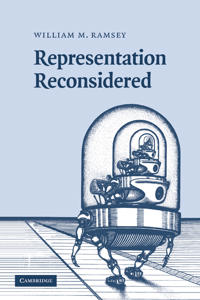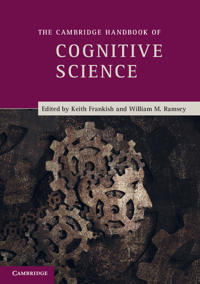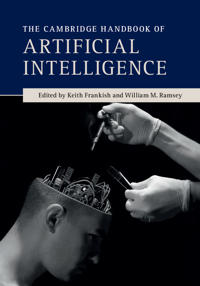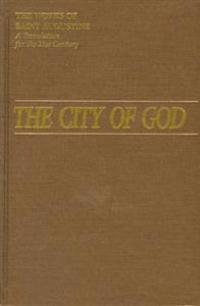The Essential Paul Ramsey (Inbunden)
avPaul Ramsey, William Werpehowski, Stephen D. Crocco
ISBN: 9780300058154 - UTGIVEN: 1994-05Paul Ramsey was one of the most important ethicists of the twentieth century. From the publication of his classic Basic Christian Ethics in 1950 until his death in 1988, his writings decisively shaped moral discourse and reflection in the areas of theology, law, politics, and medicine. This collecti[...]
Submitting To Freedom: The Religious Vision Of William James (Inbunden)
avBennett Ramsey
ISBN: 9780195074260 - UTGIVEN: 1993-01-01Abomination: Devil Worship and Deception in the West Memphis Three Murders (Häftad)
avWilliam Ramsey
ISBN: 9781479216635 - UTGIVEN: 201212Werewolf: A True Story of Demonic Possession (Häftad)
avEd Warren, Lorraine Warren, William Ramsey
ISBN: 9781631680151 - UTGIVEN: 2014-12Representation Reconsidered (Häftad)
avWilliam M. Ramsey
ISBN: 9780521153324 - UTGIVEN: 2010-06Cognitive representation is the single most important explanatory notion in the sciences of the mind and has served as the cornerstone for the so-called 'cognitive revolution'. This book, originally published in 2007, critically examines the ways in which philosophers and cognitive scientists appeal[...]
The Cambridge Handbook of Cognitive Science (Pocket)
avKeith Frankish, William M. Ramsey, Keith Frankish
ISBN: 9780521691901 - UTGIVEN: 201209Cognitive science is a cross-disciplinary enterprise devoted to understanding the nature of the mind. In recent years, investigators in philosophy, psychology, the neurosciences, artificial intelligence, and a host of other disciplines have come to appreciate how much they can learn from one another[...]
The Cambridge Handbook of Artificial Intelligence (Pocket)
avKeith (EDT) Frankish, William M. (EDT) Ramsey, Keith (EDT) Frankish
ISBN: 9780521691918 - UTGIVEN: 2014-07Artificial intelligence, or AI, is a cross-disciplinary approach to understanding, modeling, and creating intelligence of various forms. It is a critical branch of cognitive science, and its influence is increasingly being felt in other areas, including the humanities. AI applications are transformi[...]
Weird Tales 317-320 Fall 1999-Summer 2000 (Pocket)
avDarrell (EDT) Schweitzer, William F. Nolan, Ramsey Campbell
ISBN: 9780809532254 - UTGIVEN: 2000-06The second four issues of Weird Tales as published by DNA Publications present new work by Brian Stableford, Darrell Schweitzer, Ian Watson, William F. Nolan, Ramsey Campbell, Tanith Lee, Hugh B. Cave, and many more.[...]
The City of God (De Civitate Die) (Inbunden)
avSaint Augustine, William (TRN) Babcock, Boniface (EDT) Ramsey
ISBN: 9781565484795 - UTGIVEN: 2013-08Along with his Confessions, The City of God is undoubtedly St. Augustine's most influential work. In the context of what begins as a lengthy critique of classic Roman religion and a defence of Christianity, Augustine touches upon numerous topics, including the role of grace, the original state of hu[...]











